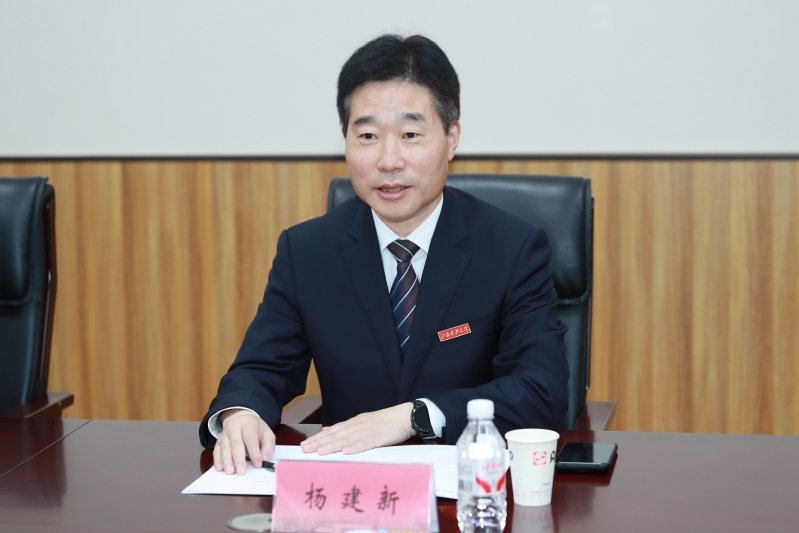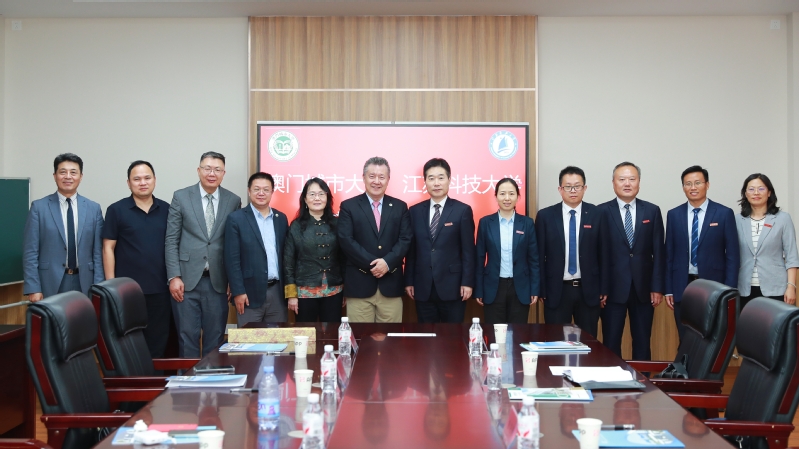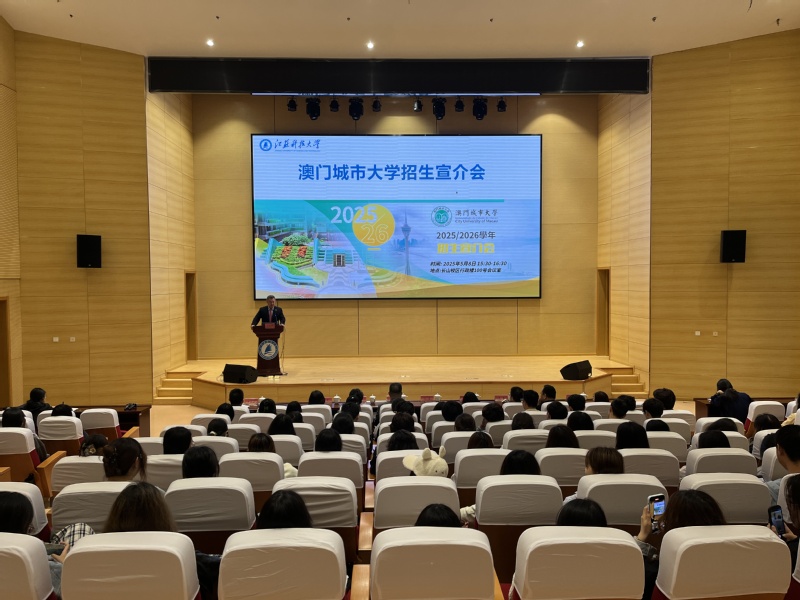On the afternoon of May 8th, a delegation led by Liu Jun, President of City University of Macau, visited our university for in-depth exchanges and discussions. Yang Jianxin, Secretary of CPC committee of the university, and Ren Nan, Member of the Standing Committee of CPC and Vice President, attended the meeting. Relevant heads from the Office of Humanities and Social Sciences, Office of Hong Kong, Macao and Taiwan Affairs, School of Humanities and Social Sciences, and School of Foreign Languages also participated in the talks, which were presided over by Ren Nan.
Yang Jianxin, on behalf of the university, extended a warm welcome to the delegation from City University of Macau and briefly introduced the university’s history and development. He noted that the university, with its long-standing history and robust educational foundation, is an industry-specific university with “Shipbuilding, Marine Engineering and Sericulture” as its distinctive disciplines. It offers a comprehensive educational system encompassing undergraduate, master, and doctor degrees. In recent years, the university has prioritized the development of distinctive disciplines, driven by scientific innovation and talent cultivation, focusing on advancing research excellence and balancing quantitative with qualitative growth. It has established a distinctive interdisciplinary development system that integrates humanities and sciences, promoted the organic alignment of talent, industry, and innovation chains, and achieved a new pattern of coordinated development in industry, academia, research, and application. In the future, the university will focus on advancing substantive cooperation with City University of Macau in areas such as student and faculty exchanges, joint think tank development, and other fields, jointly contributing higher education-driven momentum to regional development and national strategies.

Liu Jun expressed gratitude for the warm reception and briefly outlined City University of Macau’s strengths in faculty development, disciplinary advancement, and international engagement. He highlighted the university’s strategic focus on diversified fields including technology, finance, big health, cultural tourism, and MICE (meetings, incentives, conferences, and exhibitions), with a commitment to fostering an innovation ecosystem that integrates interdisciplinary collaboration and global partnerships. Furthermore, it aims to establish a novel educational model characterized by the fusion of technology and humanities, alongside cross-border collaborative innovation. Emphasizing the potential for deeper synergy, Liu proposed strengthening collaboration with our university through joint cultivation of interdisciplinary talents, co-development of research platforms, and mutual access to innovation resources, with the vision of creating a benchmark for higher education partnerships.

As one of the initial strategic initiatives under the cooperation framework, City University of Macau concurrently hosted a specialized enrollment promotion event. Representatives from its School of Humanities and Social Sciences, School of International Tourism and Management, and Institute for Research on Portuguese-speaking Countries provided detailed introductions to their respective academic programs. The university’s enrollment director announced plans to establish a mechanism specifically for Jiangsu University of Science and Technology graduates, with a focus on nurturing interdisciplinary talents equipped with a global perspective. The session drew participation from over 100 faculty members and students across our university’s School of Humanities and Social Sciences and School of Foreign Languages. Meanwhile, a relevant official from the Student Affairs Office was present to assist students in need of gaining a deeper understanding of cross-border pathways for further studies.

On the morning of May 9th, Jin Lixian, Dean of the School of Humanities and Social Sciences at City University of Macau, delivered a specialized lecture to faculty and students of the School of Foreign Languages, focusing on the connotation of elicited metaphor analysis as a qualitative research methodology. Audience members engaged in in-depth discussions on issues such as validity verification in metaphor analysis, providing new methodological perspectives.
This visit marks the inaugural step in deepening strategic cooperation between the two universities. Both sides will strengthen collaborative synergy in talent cultivation, scientific innovation, and other key domains, jointly advancing the high-quality development of higher education.

